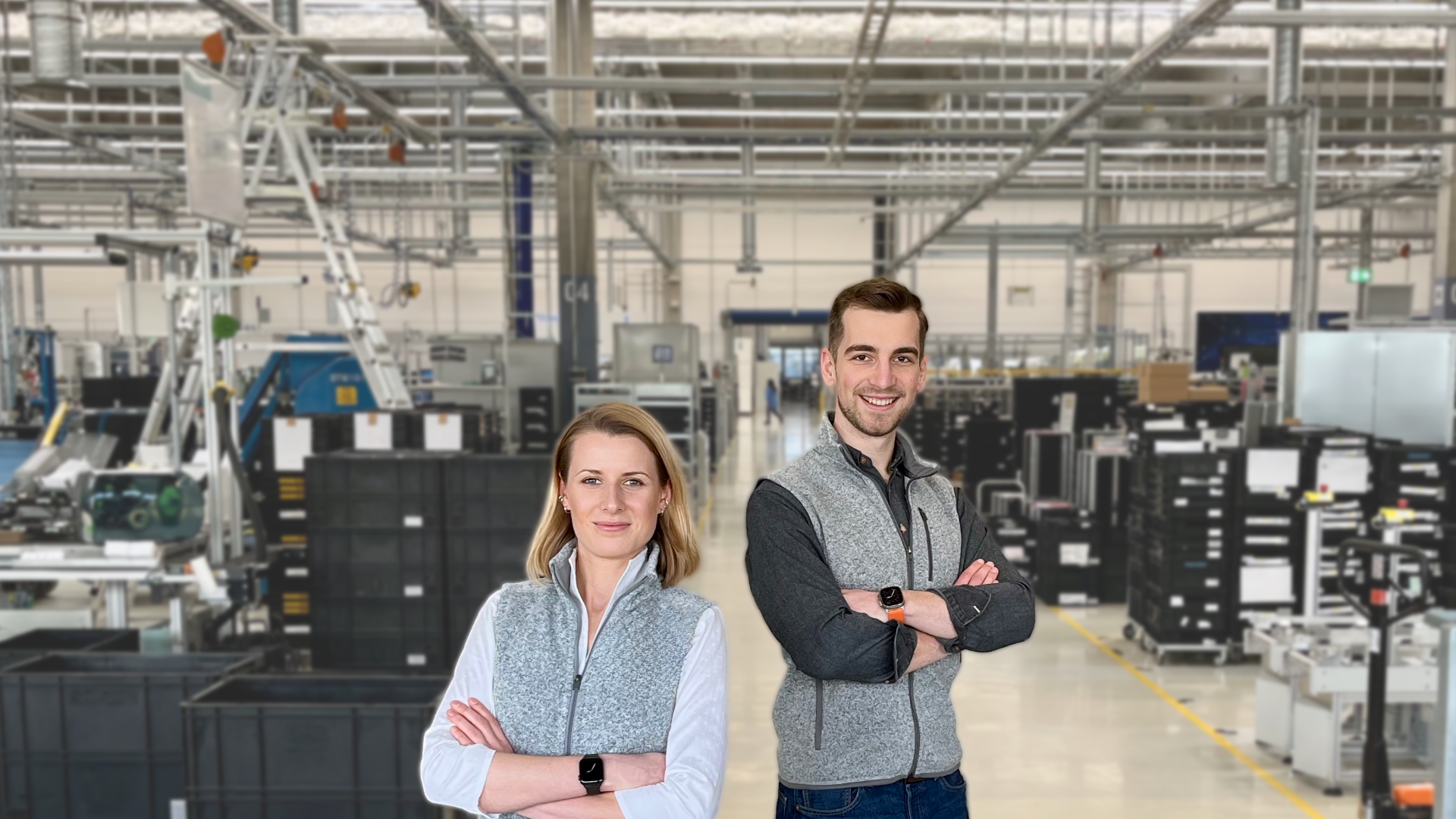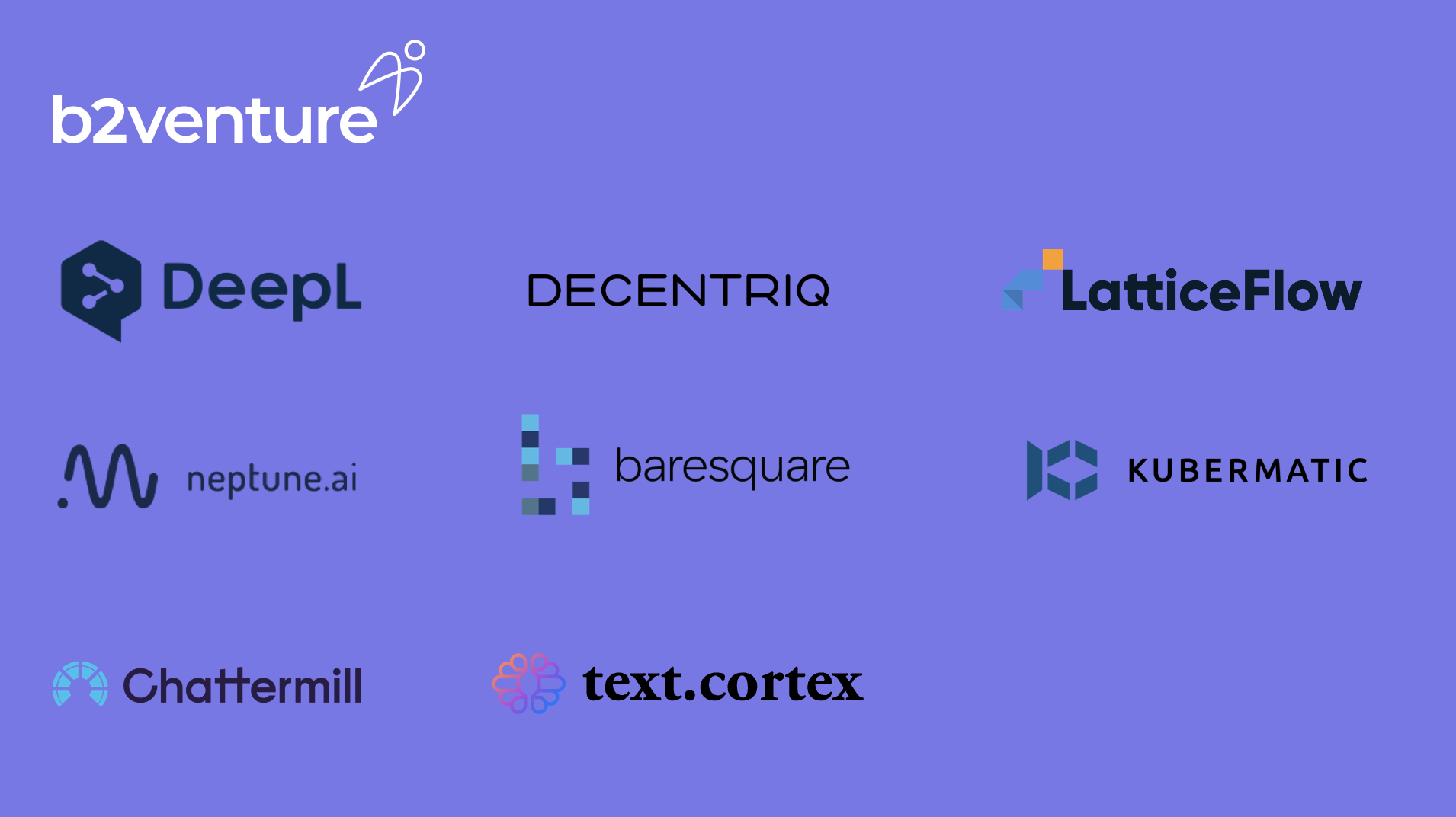Virtual Scientists and the Future of Drug Discovery - Why we invested in Kiin
Virtual Scientists and the Future of Drug Discovery - Why we invested in Kiin
Unlocking a $52 Billion GenAI Opportunity in Pharma R&D
AI in drug discovery promises to accelerate the delivery of novel therapeutics to patients, unlocking industry value measured in the tens of billions of dollars – but only if we build the right infrastructure to realize it. A PwC study estimates an additional $250 billion in annual pharma profits by 2030 through AI adoption, with roughly a quarter of that impact coming from R&D alone – i.e. on the order of $50+ billion attributable to better research workflows.
Why isn’t this value being captured yet? The R&D value chain in pharma is complex and traditionally siloed. Drug discovery involves many specialized steps – from target identification and molecule design to in vitro experiments and preclinical studies – often executed on disparate software and data systems. Simply sticking a generic AI on top of this fragmented stack yields marginal gains. The next breakthrough requires an AI-enabled platform that orchestrates best-in-class tools and data across every step of drug discovery.
Kiin Bio provides exactly that. It’s not just another algorithm – it’s a platform of “Virtual Scientists” that natively connects to lab databases, modeling software, analysis pipelines, and more. By bringing generative AI into a domain-specific platform, Kiin Bio can tackle the full spectrum of R&D tasks in one place.
That’s why we’re thrilled to announce that we led Kiin Bio’s $2.2m pre-seed round - with several factors that solidified our investment thesis:

Acute Talent Shortage Meets a New Kind of Scientist
Biotech and pharmaceutical R&D faces an acute talent crunch: A McKinsey survey found that 9 out of 10 biotech executives anticipate major skill gaps in areas like research and data analytics. Despite the promise of AI, the limited supply of R&D expertise threatens to bottleneck innovation.
Kiin’s Virtual Scientists offer a compelling solution at just the right time. Instead of trying to hire more human PhDs in a tight market, companies can equip their existing teams with AI copilots that plan experiments, analyze data, and even handle experiments and computational work. By operating 24/7 and learning across vast datasets, a Virtual Scientist can multiply the output of a human team. In an industry where a single breakthrough can save lives, this augmentation is transformative.
A Familiar Toolbox in an AI Brain – Earning Scientists’ Trust
New technology only drives impact if real scientists adopt it. A key insight from our thesis is that R&D professionals – often rightly skeptical of “black box” AI – will embrace tools that are reliable, transparent and familiar. Kiin has taken this to heart: their Virtual Scientists work step-by-step through the same instruments and software that scientists already know and trust, but with AI enhancement. Rather than replace existing workflows, Kiin’s system operates within them. We believe this transparency and interoperability will be key to driving adoption among domain experts.
Data and Reasoning Loops Create a Powerful Moat
One of the most strategic aspects of Kiin is the data flywheel it creates over time. Every interaction – every experiment plan the AI generates, every troubleshooting step, every successful or failed hypothesis – produces valuable data about scientific reasoning. Kiin’s system is designed to capture this metadata (of course with appropriate privacy for any proprietary project) and learn from it. Over time, Kiin will amass a unique trove of “experiment design” data: essentially, a knowledge base of what approaches and combination of tools and data work in certain scenarios, how experienced researchers tackle problems, and where bottlenecks occur.
This is a fundamentally new dataset in drug discovery. Historically, experiment plans and scientific reasoning have lived in lab notebooks and human brains. By digitizing and aggregating these, Kiin can continuously fine-tune its AI models to become an ever-better research partner. Just as important, this forms a defensible moat. The more labs that use Kiin, the more proprietary insight the AI gains into how to design effective experiments – insight that competitors can’t easily replicate.
A Business Model aligned with Scientific Impact
Kiin licenses Virtual Scientists the way a lab adds team members: Customers pay only for the Virtual Scientists that are deployed, so cost rises in step with real productivity gains. About 70 percent of FDA-approved drugs now come from small and mid-sized biotechs, and this seat-like pricing lets those lean teams access enterprise-grade capabilities without heavy upfront spend. When a project needs extra firepower, teams can spin up more agents or add specialized models, assays, and datasets from Kiin’s marketplace - each clearly priced and instantly usable. This à-la-carte structure keeps budgets predictable, lets scientists scale capabilities as programs evolve, and avoids the hidden compute fees that plague generic AI tools.
The Path to Vertically Integrated Discovery
Kiin’s architecture lets the same Virtual Scientist orchestrate today’s software tools and tomorrow’s autonomous lab robots: Pushing a hypothesis, triggering an experiment and cycling results back within hours. By owning both design and execution data, the platform evolves from smart assistant to operating system for self-driving R&D. Kiin is actively inviting data and tool providers to join the Kiin Marketplace, expanding the ecosystem that each agent can draw on. Rather than building isolated, in-house stacks, Kiin aims to be the tech partner that helps tens of thousands of drug-discovery teams advance molecules to the clinic. In short, Kiin is positioning itself as the vertically integrated backbone of autonomous drug discovery.
A Team Uniquely Suited to Bridge Biotech and AI
We also invested in Kiin because of the people behind it. The founding team combines deep biotech expertise with top-tier AI talent, a rare but crucial mix for tackling this problem. Kiin’s CEO, Filippo Abbondanza, exemplifies this dual DNA – he holds a PhD in Bioinformatics and previously led product development at Lifebit (a data discovery and genomics AI platform). Mark Davies (CDSO) brings over 20 years’ experience in AI-enabled drug discovery and data strategy from management roles at BenevolentAI, having created some of the largest data platforms in the industry to establishing strategic partnerships with all leading life science data and tooling providers to directly support AI-enabled drug discovery. Bogdan Urse (CTO) built multi-cloud infrastructure at Lifebit and previously worked on enterprise systems, providing robust tech leadership and the required expertise on industry-specific compliance requirements.
Equally important is the team’s execution velocity and user-centric iteration. Kiin engages closely with users – from biotech startups to academic labs – to refine the platform. We were impressed to see how the co-founders combine deeply detailed understanding with agility and speed to turn feedback into new features.
Our team at b2venture is proud to partner with Kiin at this early stage. We look forward to working with the team as they transform drug discovery workflows and unlock new possibilities at the intersection of AI and life science. If you are a founder, investor, or pharma leader interested in the future of AI-driven drug discovery, keep an eye on Kiin – or better yet, reach out to collaborate with them.
In an industry defined by innovation, we believe Kiin’s platform can become a foundational piece of the R&D infrastructure, accelerating the journey from scientific idea to life-saving medicine. Stay tuned!
Unlocking a $52 Billion GenAI Opportunity in Pharma R&D
AI in drug discovery promises to accelerate the delivery of novel therapeutics to patients, unlocking industry value measured in the tens of billions of dollars – but only if we build the right infrastructure to realize it. A PwC study estimates an additional $250 billion in annual pharma profits by 2030 through AI adoption, with roughly a quarter of that impact coming from R&D alone – i.e. on the order of $50+ billion attributable to better research workflows.
Why isn’t this value being captured yet? The R&D value chain in pharma is complex and traditionally siloed. Drug discovery involves many specialized steps – from target identification and molecule design to in vitro experiments and preclinical studies – often executed on disparate software and data systems. Simply sticking a generic AI on top of this fragmented stack yields marginal gains. The next breakthrough requires an AI-enabled platform that orchestrates best-in-class tools and data across every step of drug discovery.
Kiin Bio provides exactly that. It’s not just another algorithm – it’s a platform of “Virtual Scientists” that natively connects to lab databases, modeling software, analysis pipelines, and more. By bringing generative AI into a domain-specific platform, Kiin Bio can tackle the full spectrum of R&D tasks in one place.
That’s why we’re thrilled to announce that we led Kiin Bio’s $2.2m pre-seed round - with several factors that solidified our investment thesis:

Acute Talent Shortage Meets a New Kind of Scientist
Biotech and pharmaceutical R&D faces an acute talent crunch: A McKinsey survey found that 9 out of 10 biotech executives anticipate major skill gaps in areas like research and data analytics. Despite the promise of AI, the limited supply of R&D expertise threatens to bottleneck innovation.
Kiin’s Virtual Scientists offer a compelling solution at just the right time. Instead of trying to hire more human PhDs in a tight market, companies can equip their existing teams with AI copilots that plan experiments, analyze data, and even handle experiments and computational work. By operating 24/7 and learning across vast datasets, a Virtual Scientist can multiply the output of a human team. In an industry where a single breakthrough can save lives, this augmentation is transformative.
A Familiar Toolbox in an AI Brain – Earning Scientists’ Trust
New technology only drives impact if real scientists adopt it. A key insight from our thesis is that R&D professionals – often rightly skeptical of “black box” AI – will embrace tools that are reliable, transparent and familiar. Kiin has taken this to heart: their Virtual Scientists work step-by-step through the same instruments and software that scientists already know and trust, but with AI enhancement. Rather than replace existing workflows, Kiin’s system operates within them. We believe this transparency and interoperability will be key to driving adoption among domain experts.
Data and Reasoning Loops Create a Powerful Moat
One of the most strategic aspects of Kiin is the data flywheel it creates over time. Every interaction – every experiment plan the AI generates, every troubleshooting step, every successful or failed hypothesis – produces valuable data about scientific reasoning. Kiin’s system is designed to capture this metadata (of course with appropriate privacy for any proprietary project) and learn from it. Over time, Kiin will amass a unique trove of “experiment design” data: essentially, a knowledge base of what approaches and combination of tools and data work in certain scenarios, how experienced researchers tackle problems, and where bottlenecks occur.
This is a fundamentally new dataset in drug discovery. Historically, experiment plans and scientific reasoning have lived in lab notebooks and human brains. By digitizing and aggregating these, Kiin can continuously fine-tune its AI models to become an ever-better research partner. Just as important, this forms a defensible moat. The more labs that use Kiin, the more proprietary insight the AI gains into how to design effective experiments – insight that competitors can’t easily replicate.
A Business Model aligned with Scientific Impact
Kiin licenses Virtual Scientists the way a lab adds team members: Customers pay only for the Virtual Scientists that are deployed, so cost rises in step with real productivity gains. About 70 percent of FDA-approved drugs now come from small and mid-sized biotechs, and this seat-like pricing lets those lean teams access enterprise-grade capabilities without heavy upfront spend. When a project needs extra firepower, teams can spin up more agents or add specialized models, assays, and datasets from Kiin’s marketplace - each clearly priced and instantly usable. This à-la-carte structure keeps budgets predictable, lets scientists scale capabilities as programs evolve, and avoids the hidden compute fees that plague generic AI tools.
The Path to Vertically Integrated Discovery
Kiin’s architecture lets the same Virtual Scientist orchestrate today’s software tools and tomorrow’s autonomous lab robots: Pushing a hypothesis, triggering an experiment and cycling results back within hours. By owning both design and execution data, the platform evolves from smart assistant to operating system for self-driving R&D. Kiin is actively inviting data and tool providers to join the Kiin Marketplace, expanding the ecosystem that each agent can draw on. Rather than building isolated, in-house stacks, Kiin aims to be the tech partner that helps tens of thousands of drug-discovery teams advance molecules to the clinic. In short, Kiin is positioning itself as the vertically integrated backbone of autonomous drug discovery.
A Team Uniquely Suited to Bridge Biotech and AI
We also invested in Kiin because of the people behind it. The founding team combines deep biotech expertise with top-tier AI talent, a rare but crucial mix for tackling this problem. Kiin’s CEO, Filippo Abbondanza, exemplifies this dual DNA – he holds a PhD in Bioinformatics and previously led product development at Lifebit (a data discovery and genomics AI platform). Mark Davies (CDSO) brings over 20 years’ experience in AI-enabled drug discovery and data strategy from management roles at BenevolentAI, having created some of the largest data platforms in the industry to establishing strategic partnerships with all leading life science data and tooling providers to directly support AI-enabled drug discovery. Bogdan Urse (CTO) built multi-cloud infrastructure at Lifebit and previously worked on enterprise systems, providing robust tech leadership and the required expertise on industry-specific compliance requirements.
Equally important is the team’s execution velocity and user-centric iteration. Kiin engages closely with users – from biotech startups to academic labs – to refine the platform. We were impressed to see how the co-founders combine deeply detailed understanding with agility and speed to turn feedback into new features.
Our team at b2venture is proud to partner with Kiin at this early stage. We look forward to working with the team as they transform drug discovery workflows and unlock new possibilities at the intersection of AI and life science. If you are a founder, investor, or pharma leader interested in the future of AI-driven drug discovery, keep an eye on Kiin – or better yet, reach out to collaborate with them.
In an industry defined by innovation, we believe Kiin’s platform can become a foundational piece of the R&D infrastructure, accelerating the journey from scientific idea to life-saving medicine. Stay tuned!

The Author

Team



















.png)



.jpg)
-min.png)


.jpg)














































.jpg)





















